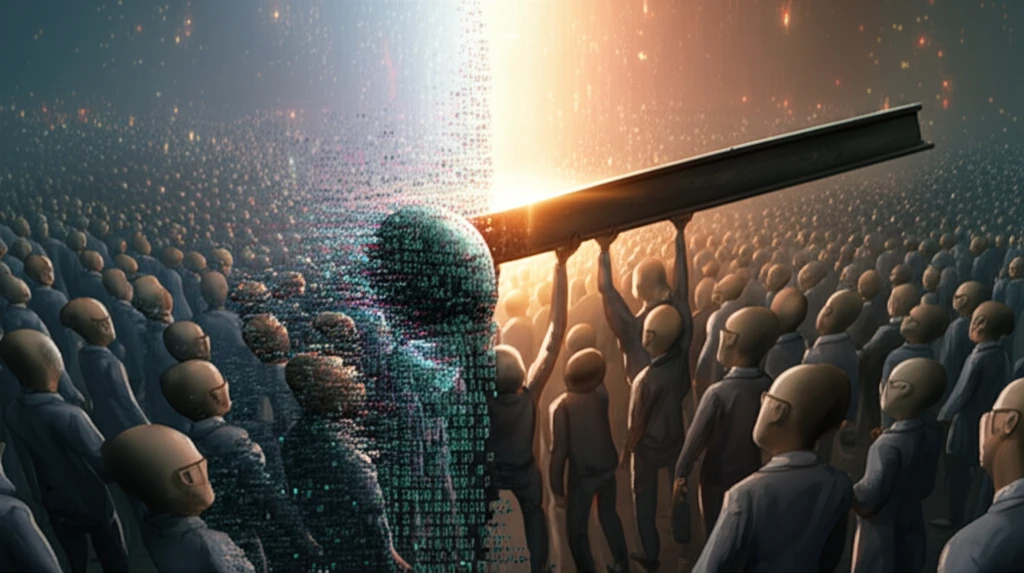
Echo Chambers or Informed Crowds? Unveiling the Paradox of Collective Action in the Digital Age
"New research sheds light on how the similarity of information within groups affects collective action, revealing surprising implications for protests, policy-making, and even authoritarian regimes."
In today's hyper-connected world, we often find ourselves surrounded by people who share our views and consume the same information. This phenomenon raises a critical question: Does increased similarity of information among individuals help or hinder our ability to work together towards common goals? This is not a trivial question, and answering it will uncover unexpected dynamics in how societies function.
Collective action, from participating in a protest to influencing policy decisions, requires individuals to coordinate their efforts. However, the temptation to free-ride—to benefit from the efforts of others without contributing oneself—often undermines these endeavors. Shared information can, theoretically, either help individuals coordinate better or exacerbate the free-riding problem, creating a complex and often paradoxical situation.
Recent research has begun to explore this issue, yielding conflicting results. For example, some studies suggest that access to shared news platforms can increase protest participation, while others indicate that knowing about others' participation can actually decrease individual willingness to act. This article delves into new research that seeks to reconcile these conflicting findings by examining the impact of information similarity on collective action across a variety of scenarios.
When Does Shared Knowledge Empower or Impede Collective Goals?

To understand the dynamics at play, the researchers constructed a theoretical model of a collective action game where individuals must decide whether to contribute to a shared goal, while also facing the temptation to free-ride. A key element of this model is incomplete information: individuals are uncertain about the potential benefits of achieving the goal and must rely on private signals to inform their decisions. This creates two layers of uncertainty: fundamental uncertainty about the value of the goal and strategic uncertainty about what others will do.
- Encouragement Environments: Situations where greater participation from others encourages individual participation. In these environments, achieving the collective goal is challenging, and individuals are more likely to contribute when they believe their efforts will make a real difference.
- Discouragement Environments: Situations where greater participation from others discourages individual participation. Here, achieving the collective goal is relatively easy, and individuals are more likely to free-ride, believing their contribution is less critical.
Implications for Protests, Policy, and Power
This research has significant implications for understanding a wide range of social and political phenomena. For example, it suggests that authoritarian governments may face larger protests when attempting to restrict press freedom in already repressed societies, while weaker regimes might actually benefit from such restrictions. In committee settings, greater diversity of information can strengthen the incentive to make informed decisions, while in other cases, it can hinder effective collaboration.
